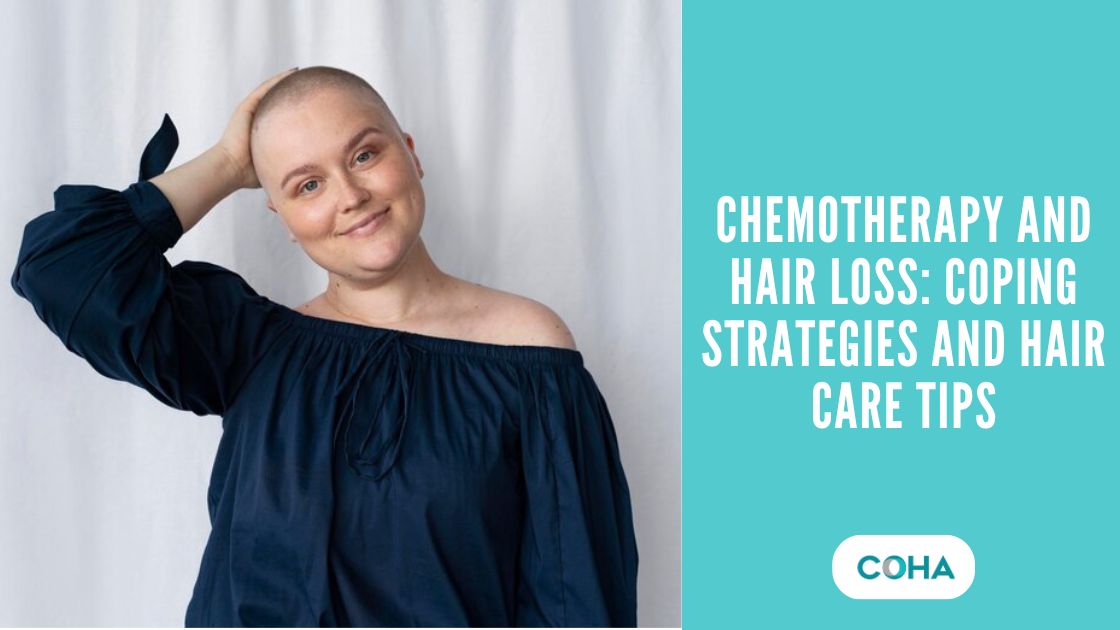Chemotherapy is a critical aspect of skin cancer treatment, but it is often synonymous with hair loss or hair thinning, one of its most distressing side effects. Hair is essential to how you look and feel about yourself, so hair loss due to chemotherapy may be difficult to come to terms with.
This blog will explain the relationship between chemotherapy and hair loss, discuss preparatory and coping mechanisms, and how to optimize hair regrowth after chemotherapy.
Why Chemotherapy Causes Hair Loss?
The medications administered to your body during chemotherapy are potent drugs that are designed to destroy the rapidly mutating abnormal skin cells. However, these chemicals also impact other healthy cells, including those in your hair follicles, leading to hair loss. Usually, the hair loss starts nearly 10-14 days after you start treatment, during which you may have hair loss not only on the scalp but also from eyebrows, eyelashes, and body hair, including pubic hair.
However, not all chemotherapy sessions result in hair fall. Also, different people respond differently to the treatment. While you may experience hair-related issues ranging from complete hair loss to hair thinning, others may not have any hair loss at all.
What Can You Do About Hair Loss While Undergoing Chemotherapy?
You can take the following steps:
- Consider wigs. Choosing the wig material depends on your choice and lifestyle. For example, synthetic wigs are cheaper and easier to maintain. If you are sensitive to wigs, you may use cotton scarves or turbans.
- Protect the skin with appropriate sun protection.
- Be gentle while brushing or washing your hair. Using a wide-toothed comb may help.
- Avoid tugging your hair to prevent further breakage.
- Apply oil or moisturizer on the scalp to prevent itchiness and drying.
- Wash your scalp with a moisturizing soap.
- Keep your head warm during the colder days.
- Try using a satin pillowcase for reduced friction.
How to Prepare for Hair Loss?
When diagnosed with skin cancer, if your doctor recommends chemotherapy as part of your treatment program, you can take the following measures to prepare for the expected hair loss:
- Consult your doctor whether hair loss is a potential outcome of your treatment.
- Discuss options to minimize and manage hair loss with them.
- Scalp cooling caps are known to mitigate hair loss risks, but learn about their advantages, drawbacks, and side effects, if any.
- Look for options to manage the consequences of hair loss on your appearance by:
- Cut your hair short or shave it off completely.
- Consider wigs or other head-covering options.
- If you prefer wigs:
- The American Cancer Society’s Tender Loving Care (TLC) catalog can be used.
- Ask for the term cranial prosthesis to be used instead of wig in your prescription to get health insurance coverage.
Coping Strategies for Hair Loss
They are as follows:
- Shave off your hair to avoid seeing it fall.
- Cut your hair short to prepare for a new look with less hair.
- Get a wig that matches your hair color and texture so your appearance is not affected.
- Experiment with a new look with an altogether different wig style and color.
- Use a hair net while sleeping to avoid seeing clumps of hair on your pillow.
- Communicate openly about your insecurities with your loved ones to help them respond proactively.
- Try to divert away from your hair with a bold accessory or bright outfit and makeup.
- Seek positivity in hair loss, as it means that your treatment is working.
- Find humor in little things related to hair loss, such as trying out new hairstyles with your limited hair, browsing through online “bald from chemo” jokes, or reading material on baldness that offers fun and camaraderie.
When Does Your Hair Grow Back?
The hair regrowth stages after chemotherapy include:
- After 3-4 weeks: Spurts of hair
- After 5 weeks: Increased growth
- After 6 weeks: Thickening of new hair
- After about 2-3 months: Hair growth up to an inch
- After 3-6 months: Uniform scalp coverage with 2-3 inches of hair
- After a year: Hair regrowth long enough to be styled or brushed
How to Make the Best of It?
To ensure that you make the best of this hair regrowth phase after your chemotherapy and to speed up the process, you may:
- Take supplements that boost hair growth, including biotin, vitamin A, or vitamin C
- Use minoxidil
Receive Customized Chemotherapy Treatments from Our Reliable Oncologists and Hematologists
At Chesapeake Oncology Hematology Associates, our board-certified specialists have immense expertise and vast experience in offering treatments for different types of cancers using the most advanced techniques. We provide a broad spectrum of chemotherapy options tailored to your health needs.
If you are looking for world-class chemotherapy options in Maryland guaranteed to offer the best outcomes, contact us today to schedule an appointment or for more details on our services.
FAQs
Q. At what stage of chemo does hair fall out?
Ans. Hair fall occurs almost after 2 weeks of chemo.
Q. What helps hair grow faster after chemo?
Ans. You can either take hair-boosting supplements or use a topical medication.
Q. Does hair grow back thinner after chemo?
Ans. The new growth of hair may seem thinner, but with time it thickens.
Q. How can I stop hair from falling out after chemo?
Ans. Hair fall after chemo is one of its unavoidable side effects. Alternative therapies, including scalp cooling, massages, or hair growth medication, have limited or no proven potential to prevent hair fall after chemo.


